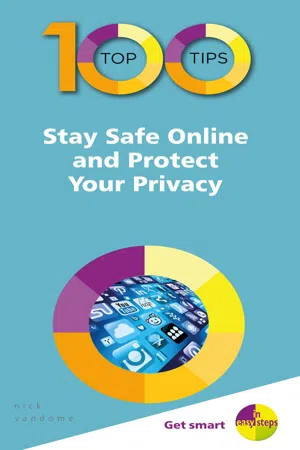![]()
Online security is, or should be, the most important issue for anyone using a device that has online access; i.e., connects to the internet and the vast array of options that are available on it. From email to instant messaging, web pages to social media apps, there is not a corner of the internet that is not affected by security issues.
Online security threats come from an extensive range of sources. At times, the range and volume of potential threats can seem rather bewildering and overwhelming. However, being aware of the threats is the first step to being able to nullify them. Some of the potential security threats include:
•Hackers. These come in a variety of forms and are generally involved in creating malicious computer programs to harm computers and mobile devices.
•Phishers. A form of hacking, this involves trying to gain people’s sensitive data and then exploit it.
•Password vulnerability. Weak or ineffective passwords can be the first way in which hackers can gain access to your devices.
•Router vulnerability. If your home internet router is not secure, this could be the first channel for people to gain access to your online systems and information.
•Online scams. These take numerous forms, from email scams offering large sums of money to fake advertising on social media sites.
•Identity fraud. This involves criminals gathering as much information as possible about someone and then pretending to be them, for financial gain.
•Trolls. An increasingly common aspect of social media, this involves spreading malicious comments and statements about other people.
| Addressing Physical Security |
Although online security is of paramount importance for all users of the internet, physical security should not be overlooked either. In some cases, physical security lapses can be the first step to opening the door to attacks on your online systems. Some areas of physical security to consider in relation to staying safe online:
•Never write down passwords for your devices and websites. If you have to do this, keep them in a secure location and do not keep them with the devices themselves.
•Keep all of your devices locked with passwords, so other people cannot use them and then access your personal data because they are not locked.
•Shred any sensitive documents with a micro-shredder (see here). This should ensure that the documents cannot then be reconstituted by someone else.
•Do not throw away any sensitive documents into the trash, as anyone could then access them and potentially commit identify theft.
•Check any online bank accounts regularly to ensure that there are not any suspicious transactions that you do not recognize. If there are, contact your bank immediately.
•Check your credit score with one of the online credit checking websites. If your score unexpectedly goes down, this could be a sign of some unauthorized activity as a result of identity fraud.
•Make sure that any old computing equipment – including desktop computers, laptops and tablets – is completely destroyed, or better still, disposed of by a professional company. Ensure that all of the data on the devices is wiped clean.
Sensitive data on your computing devices is anything that you do not want someone else to see. It could be personal details that you do not want to be widely available, or financial details of online bank accounts. These details could be embarrassing or, worse, financially compromising. Even if the details themselves are not of interest to someone else, if they access your data and systems they may then be able to wreak havoc further afield and with other people; e.g., if they gain access to your online address book and contacts.
To ensure that your sensitive data is as secure as possible there are a few steps that can be taken:
•Use secure passwords on all of your digital devices, even if they are not connected to the internet: there could still be sensitive data on the device that could be accessed and used against you. Ensure that passwords are a minimum of eight characters (and preferably longer) and a mixture of uppercase and lowercase letters, numbers and symbols.
•Never divulge passwords to anyone, not even family members. If you tell someone else your password then your online security could be out of your own hands.
•Use anti-virus and firewall software. This is not foolproof, but it will help guard against a wide range of viruses and malicious software.
•Be careful when using public Wi-Fi hotspots. Do not access any of your own sensitive data when using a Wi-Fi hotspot, as it is possible for someone nearby to access your details through the hotspot.
•Never click on links in emails from people you don’t know. Even if it is from someone that you do know, always be wary of links in emails, as the emails themselves could be fake ones from a hacker who has gained access to one of your friends’ contacts lists.
| Using Anti-Virus Software |
Anti-virus software is one answer to the comp...




